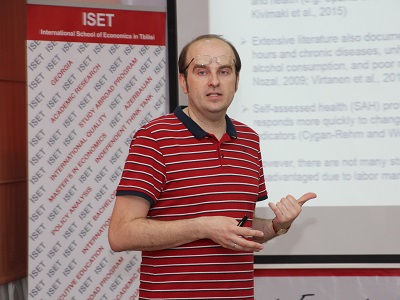The debate over working hours has become a frequent topic of discussion in recent years, especially as increasing numbers of modern industries (especially workplaces such as technology startups) find the traditional nine-to-five standard incompatible or irrelevant. Research and experiments – most notably those conducted in Scandinavia – have also contributed to the discussion, especially with regards to the idea that overworking can be unhealthy or dangerous.
However, the experiments and research have universally been concentrated on the developed world, with the circumstances of many countries remaining unexamined. To this end, Maksym Obrizan of the Kyiv School of Economics has been examining the issue in a wider context on his own.
Maksym’s investigation is ongoing and is unpublished at this time, but so far the findings have been mixed. Dividing the study into both rural and urban communities, overall, working longer hours or holding more than one job suggested a marginally higher probability of experiencing health risks; this was consistent with previous findings.
However, the results were muddied slightly due to respondents self-rating their own health – the responses were different from those deemed to be better-educated, who described their health conditions in a more positive way. Those who were older, divorced, lived further north, or held communist beliefs were all found to report their health as being worse than other respondents. In addition, the research also found that under-working can lead to health problems, a phenomenon not widely reported on in previous examinations.
As self-rated health assessments are by their nature highly subjective, Maksym admitted in his presentation that the research is somewhat limited this way, but pledged that this will be addressed when more data becomes available. With the topic still relatively new even in the public sphere of the West, it is likely that it will take some time before a truly clear picture of the situation is available in transition economies.
ISET would like to thank Maksym for taking the time to visit the institute and present his findings to the community.











